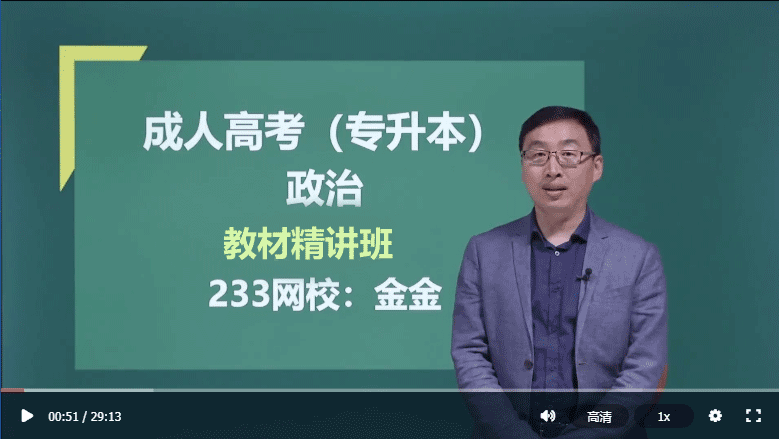φàêδΚΚε≠ΠδΫçη΄±η·≠εΛ΅ηÄÉη·çφ±΅δΗ≠φ‰™φΖΖφΖÜη·çδΚî
ψÄÄψÄÄ101.muchοΦ¨ very
ψÄÄψÄÄιÉΫεè·ηΓ®γΛΚβÄ€εΨàβÄùψIJ
ψÄÄψÄÄmuchγî®φùΞδΩ°ιΞΑεä®η·çφ³èδΙâεΨàεΦΚγö³ηΩ΅εéΜεàÜη·çοΦ¦veryδΗÄηà§δΩ°ιΞΑεΫΔε°Ιη·çφà•εΖ≤εΛ±εéΜεä®δΫ€φ³èδΙâγö³ηΩ΅εéΜεàÜη·çψIJ
ψÄÄψÄÄδΗÄδΚ¦εèΣδΫ€ηΓ®η·≠γö³εΫΔε°Ιη·çοΦ¨δΗÄηà§εΛöγî®muchδΩ°ιΞΑψIJ
ψÄÄψÄÄvery muchφ‰·muchγö³εä†εΦΚη·≠ο֨妆φ≠ΛοΦ¨ηÉΫγî®muchγö³ε€Αφ•ΙοΦ¨ιÉΫηÉΫγî®very much.
ψÄÄψÄÄδΩ°ιΞΑεΫΔε°Ιη·çεéüγΚßγî®veryοΦ¨δΩ°ιΞΑφ·îηΨÉγΚßγî®much.
ψÄÄψÄÄmuchεè·δΩ°ιΞΑεêçη·çοΦ¨veryδΗçηÉΫψIJ
ψÄÄψÄÄ102.neglectοΦ¨ overlookοΦ¨ ignore
ψÄÄψÄÄneglectεè·δΜΞφ‰·φ€âφ³èοΦ¨δΙüεè·δΜΞφ‰·φ½†φ³èε€ΑβÄ€εΩΫγïΞβÄùφà•βÄ€εΩΫηßÜβÄùεΚîη·Ξε¹öγö³δΚ΄ψIJεΠ²οΦöIf others neglect their duty to youοΦ¨ be sure that you perform yours to them. οΦàεç≥δΫΩδΜ•δΚΚεΩΫγïΞδΚÜε±ΞηΓ¨ε·ΙδΫ†γö³δΙâεäΓοΦ¨δΫ†δΙüηΠ¹ε±ΞηΓ¨δΫ†ε·ΙδΜ•δΜ§γö³δΙâεäΓψIJοΦâ
ψÄÄψÄÄoverlookφ¨΅γî±δΚéγ≤½εΩÉεΛßφ³èοΦ¨ε¨ÜεΩôηĨβÄ€γ€΄φΦèβÄùφà•βÄ€εΩΫγïΞβÄùφüêδΗ€ηΞΩφà•φüêδΚ΄ε°ûψIJεΠ²οΦöHis services have been overlooked by his employers.οΦàδΜ•γö³εΖΞδΫ€δΗÄ㦥φ≤Γφ€âεΨ½εàΑ馡δΗΜγö³ι΅çηßÜψIJοΦâ
ψÄÄψÄÄignoreδΗçιΓΨοΦ¨δΗçγêÜοΦ¨εΗΗφ¨΅φ€âφ³èε€ΑδΗçγêÜοΦ¨δΗçεä†εàÜφûêε€Αφ΄£γΜùηÄÉηôëψIJεΠ²οΦöShe saw him coming but she ignored him.
ψÄÄψÄÄ103.happenοΦ¨ occurοΦ¨ take place
ψÄÄψÄÄεù΅ηΓ®γΛΚβÄ€εèëγîüβÄùψIJ
ψÄÄψÄÄhappenφ‰·εΗΗγî®η·çοΦ¨φ¨΅ε¹Εγ³Εφà•φ¨âη°Γεà£γö³εèëγîüψIJεΠ²οΦöWhen did the explosion happenοΦüοΦàγàÜγ²ΗδΜÄδΙàφ½ΕεÄôεèëγîüοΦüοΦâ
ψÄÄψÄÄoccurφ‰·ηΨÉφ≠ΘεΦèγö³γî®η·çοΦ¨δΗΜηΠ¹γî®δΜΞφ¨΅φ½†η°Γεà£γö³εèëγîüψIJ
ψÄÄψÄÄtake placeεΛöηΓ®γΛΚφÉÖεÜΒφà•δΚ΄φÉÖφ¨âη°Γεà£εèëγîüψIJεΠ²οΦöThe story took place in 1917.οΦàφïÖδΚ΄εèëγîüε€®1917εΙ¥ψIJοΦâ
ψÄÄψÄÄ104.chanceοΦ¨ opportunityοΦ¨ occasion
ψÄÄψÄÄchanceεΛöφ¨΅ε¹Εγ³Εγö³φ€ΚδΦöοΦ¨φ³èεΛ•γö³φ€ΚδΦöοΦ¨εΗΠφ€âδΨΞεΙΗγö³φ³èεë≥ψIJεΠ²οΦöEven soοΦ¨ it was a lucky chance that he could do it.οΦàεç≥δΫΩεΠ²φ≠ΛοΦ¨ι²ΘδΙüφ‰·δΜ•ε΅≠γùÄδΨΞεΙΗφâçε¹öεàΑηΩôγ²ΙψIJοΦâ
ψÄÄψÄÄopportunityδΗΜηΠ¹φ¨΅ηÉΫεΛüεéΜε¹öφüêδΚ΄οΦ¨εΑΛεÖΕφ‰·ηΨΨεàΑη΅ΣεΖ±γ¦°γö³οΦ¨ε°ûγéΑφüêγßçφ³Ωφ€¦γö³εΞΫφ€ΚδΦöψIJεΠ²οΦöYou should make the most of your opportunities of seeing the country and learning the language.οΦàδΫ†εΚîη·ΞεΑΫι΅èεà©γî®δΫ†γö³φ€ΚδΦöεéΜ〴〴ηΩôδΗΣε¦Ϋε°ΕοΦ¨ε≠ΠδΙ†ε°Éγö³η·≠η®ÄψIJοΦâ
ψÄÄψÄÄoccasionδΗΜηΠ¹φ¨΅βÄ€φ½Εφ€ΚβÄùοΦ¨βÄ€ε€ΚεêàβÄùοΦ¨δΙüεêΪφ€âβÄ€φ€ΚδΦöβÄùγö³φ³èφÄùψIJεΠ²οΦöThe flags are hung out on the occasion of the National Day.οΦàφ·èιÄΔε¦ΫεΚÜηä²οΦ¨ε¦Ϋφ½½ιÉΫφ²§φ¨¹ε΅ΚφùΞδΚÜψIJοΦâ
ψÄÄψÄÄ105.persistοΦ¨ insist
ψÄÄψÄÄpersistεùöφ¨¹οΦ¨εêéιùΔεΗΗφéΞδΜ΄η·çin.εΠ²οΦöHe persisted in carrying on his work in spite of great fatigue.οΦàδΜ•ηôΫγ³Εγ•≤εÄΠφû¹δΚÜοΦ¨εè·δΜçεùöφ¨¹εΖΞδΫ€ψIJοΦâ
ψÄÄψÄÄinsistεùöφ¨¹οΦ¨εêéιùΔφéΞδΜ΄η·çonοΦ¨δΙüεè·γ¦¥φéΞηΩûγî®thatεΦïε·Φγö³εêçη·çδΜéεèΞψIJεΠ²οΦöHe insisted on my going there with him. οΦàHe insisted that I should go there with him.οΦâ
ψÄÄψÄÄ106.preserveοΦ¨ conserveοΦ¨ reserve
ψÄÄψÄÄpreserveεùöφ¨¹οΦ¨εêéιùΔεΗΗφéΞδΜ΄η·çin.εΠ²οΦöThe ship is equipped with special refrigerating devices to preserve food for the whole voyage.οΦàηàΙδΗäη°Ψφ€âγâΙφ°äεÜΖη½èη°ΨεΛ΅οΦ¨ε€®φï¥δΗΣηàΣγ®΄δΗ≠δΩùε≠‰ιΘüγâ©ψIJοΦâ
ψÄÄψÄÄconserveδΩùε≠‰οΦ¨ε²®η½èοΦ¨εΦΚηΑÉι΅΅εè•φéΣφ•Ϋγ≤ΨεΩÉδΩùφäΛφüêγâ©οΦ¨ι‰≤φ≠ΔδΗçεΩÖηΠ¹γö³φΒΣη¥ΙοΦ¨φçüεΛ±φà•εè‰ε¨•ψIJεΠ²οΦöHe is conserving his energy for the last twenty-meter dash.οΦàδΜ•φ≠Θε€®δΗΚεêé20γ±≥εÜ≤εàΚδΩùε≠‰ε°ûεä¦ψIJοΦâ
ψÄÄψÄÄreserveγïôε≠‰οΦàε€®ηΒ³ι΅ëοΦ¨δΚΚεä¦οΦ¨εéüφ•ôγ≠âοΦâοΦ¨δΩùγïôοΦàφùÉεä¦γ≠âοΦâψIJεΠ²οΦöReserve enough money for your home fare.οΦàγïôηΕ≥δΫ†ε¦ûε°Εγö³ηΖ·η¥ΙψIJοΦâ
ψÄÄψÄÄ107.probableοΦ¨ possibleοΦ¨ likely
ψÄÄψÄÄprobableεΨàεè·ηÉΫγö³οΦ¨εΛßφΠ²γö³οΦ¨η·≠φΑîηΨÉpossibleεΦΚψIJεΠ²οΦöIt is probable that the cost will be greater than we think.οΦàηä±η¥ΙεΨàεè·ηÉΫφ·îφàëδΜ§φ•ôφÉ≥γö³ηΠ¹εΛöψIJοΦâ
ψÄÄψÄÄpossibleεΦΚηΑÉε°Δηß²δΗäεè·ηÉΫφÄßοΦ¨δΫÜεΗΗεΗΠφ€âβÄ€ε°ûιôÖεè·ηÉΫφÄßεΨàεΑèβÄùγö³φö½γΛΚψIJεΠ²οΦöItβĉs possibleοΦ¨ though not probableοΦ¨ that he will accept these terms. οΦàδΜ•φ€âεè·ηÉΫφéΞεè½ηΩôδΚ¦φùΓδΜΕοΦ¨δΫÜεΗ¨φ€¦εΨàεΑèψIJοΦâ
ψÄÄψÄÄlikelyφö½γΛΚδΜéηΓ®ιùΔηΩΙη±ΓφùΞεàΛφ•≠βÄ€φ€âεè·ηÉΫγö³βÄùψIJεΠ²οΦöIt is likely that he will come.οΦàδΜ•εΛöεçäδΦöφùΞψIJοΦâ
ψÄÄψÄÄ108.purposeοΦ¨ goalοΦ¨ aimοΦ¨ endοΦ¨ object
ψÄÄψÄÄpurposeγ¦°γö³οΦ¨φ³èε¦ΨοΦ¨φ·îηΨÉγΓ°ε°öοΦ¨εΛöφ¨΅ι΅΅εè•εùöεÜ≥γö³ηΓ¨εä®εéΜηΨΨεàΑγ¦°γö³ψIJεΠ²οΦöThe tutor explained the purpose of the exercise.οΦàε·ΦεΗàη·¥φ‰éδΚÜη·ΞγΜÉδΙ†γö³γ¦°γö³ψIJοΦâ
ψÄÄψÄÄgoalφ¨΅γΜèηΩ΅δΜîγΜÜηÄÉηôëηĨιÄâδΗ≠γö³φ·îηΨÉεΛßγö³γ¦°φ†΅οΦ¨εΗΗι€ÄηΠ¹εäΣεä¦φà•εÖ΄φ€çε¦ΑιöΨφâçηÉΫηΨΨεàΑγö³γ¦°γö³ψIJεΠ²οΦöThe goal of her desire is to be a singer.οΦàεΞΙφΗ¥φ€¦φàêδΗΚδΗÄεêçφ≠¨εî±ε°ΕψIJοΦâ
ψÄÄψÄÄaimεΗΗφ¨΅γü≠φ€üγ¦°φ†΅οΦ¨εΨÄεΨÄφ·îηΨÉεÖΖδΫ™οΦ¨δΙüφ·îηΨÉε°ûιôÖψIJεΠ²οΦöMy first aim is to receive a complete and good education.οΦàφàëγö³δΗΣγ¦°φ†΅φ‰·φéΞεè½ε°¨φï¥ε£¨ηâ·εΞΫγö³φïôη²≤ψIJοΦâ
ψÄÄψÄÄendγ¦°φ†΅οΦ¨γ¦°γö³οΦ¨ηΨÉφ≠ΘεΦèψIJεΠ²οΦöMy chief end is to serve my country and my people.οΦàφàëγö³ιΠ•ηΠ¹γ¦°φ†΅φ‰·δΗΚε¦ΫδΗΚφΑëφ€çεäΓψIJοΦâ
ψÄÄψÄÄobjectφ¨΅ηΨÉφ‰éγΓ°εÖΖδΫ™γö³εçïδΗΣγ¦°φ†΅οΦ¨εΨÄεΨÄε΅ΚδΚé㦥φéΞγö³ι€ÄηΠ¹ε£¨φ³Ωφ€¦ψIJεΠ²οΦöWhat is the object of your visitοΦüοΦàδΫ†η°Ωι½°γö³γ¦°γö³φ‰·δΜÄδΙàοΦüοΦâ
ψÄÄψÄÄ109.respectableοΦ¨ respectedοΦ¨ respectfulοΦ¨ respective
ψÄÄψÄÄιÉΫφ‰·εΫΔε°Ιη·çψIJ
ψÄÄψÄÄrespectableεè·εΑäφï§γö³οΦ¨εÄΦεΨ½εΑäι΅çγö³ψIJεΠ²οΦöHis parents were poor but respectable.οΦàδΜ•γàΕφ·çηôΫγ©Ζεç¥δΜΛδΚΚεΑäφï§ψIJοΦâ
ψÄÄψÄÄrespectedηΓ®γΛΚεè½δΚΚεΑäφï§γö³οΦ¨εè·γî®δΚéε·ΙεΙ¥ιïΩγö³δΚΚοΦ¨φùÉε®¹φÄßγö³φ³èηß¹γ≠âψIJ
ψÄÄψÄÄrespectfulφ¨΅βÄ€εÖÖφΜΓφï§φ³èγö³βÄùοΦ¨φ‰·δΗΜεä®φÄßγö³εΑäι΅çδΜ•δΚΚψIJεΠ²οΦöThe students were very respectful towards the great man.οΦàηΩôδΚ¦ε≠Πγîüε·ΙηΩôδΫçδΦüδΚΚεç¹εàÜφï§δΜΑψIJοΦâ
ψÄÄψÄÄrespectiveηΓ®βÄ€εê³η΅ΣεàÜεàΪγö³βÄùοΦ¨δΩ°ιΞΑεêçη·çφ½ΕοΦ¨εêçη·çδΗÄηà§γî®εΛçφïΑψIJεΠ²οΦöThey went back to their respective houses.οΦàδΜ•δΜ§ε¦ûδΚÜεê³η΅Σγö³ε°ΕψIJοΦâ
ψÄÄψÄÄ110.roundοΦ¨ around
ψÄÄψÄÄroundδΫ€εâ·η·çφ½ΕοΦ¨εê¨aroundφ³èφÄùγ¦ΗηΩëοΦ¨ηß³η¨Éγî®φ≥ïεΚîε¨ΚεàΪφäΞηÄÉ壨ιùôφĹψIJψÄÄRoundγî®δΚéε€Üεë®ηΩêεä®φà•φΒ΄ι΅èοΦ¨aroundγî®δΚéφ¨΅ι¹çεèäηΓ®ιùΔφà•δΗ≠εΩÉιô³ηΩëψIJεΠ²οΦöThe spaceship traveled round the world in 40 minutes. They planted trees around the lawn.
ψÄÄψÄÄaroundγî®δΚéφ¨΅ι¹çεèäηΓ®ιùΔφà•δΗ≠εΩÉιô³ηΩëψIJεΠ²οΦöThe spaceship traveled round the world in 40 minutes. They planted trees around the lawn.
ψÄÄψÄÄ111.rouseοΦ¨ arouse
ψÄÄψÄÄrouseηΓ®βÄ€φΩÄηΒΖβÄùοΦ¨η·≠φΑîφ·îarouseεΦΚοΦ¨εΗΗφ€âβÄ€γß·φû¹ηΓ¨εä®βÄùγö³φ³èφÄùψIJ
ψÄÄψÄÄarouseηΓ®βÄ€εΦïηΒΖβÄùοΦ¨εä®δΫ€φ³èεë≥ηΨÉεΦ±οΦ¨ε€®ηΓ®βÄ€εîΛηΒΖβÄùφ³èδΙâφ½ΕοΦ¨εè·γî®rouseφçΔγî®ψIJ
ψÄÄψÄÄ112.sayοΦ¨ speakοΦ¨ talkοΦ¨ tell
ψÄÄψÄÄsayγùÄι΅çφâÄη·¥γö³η·ùοΦ¨εè·γî®δΫ€εèäγâ©εä®η·çοΦ¨εΗΠε°Ψη·≠δΜéεèΞψIJ
ψÄÄψÄÄSpeakγùÄι΅çεΦÄεèΘεèëεΘΑοΦ¨δΗçγùÄι΅çφâÄη·¥γö³εÜÖε°ΙοΦ¨δΗÄηà§δΫ€δΗçεèäγâ©εä®η·çοΦ¨γî®δΫ€εèäγâ©εä®η·çοΦ¨ε°Ψη·≠εèΣηÉΫφ‰·φüêγßçη·≠η®Äγ≠âεΑëφïΑ塆δΗΣεêçη·çοΦ¨δΗçηÉΫφéΞthatδΜéεèΞψIJ
ψÄÄψÄÄTalkηΓ®γΛΚιÄöηΩ΅ηΑàη·ùφ•ΙεΦèδΚΛφçΔφ³èηß¹ψĹφÄùφÉ≥ψĹφΕàφ¹·γ≠âοΦ¨δΗÄηà§εèΣδΫ€δΗçεèäγâ©εä®η·çψIJ
ψÄÄψÄÄTellηΓ®γΛΚεëäη·âοΦ¨φ€âφ½ΕεÖΦεêΪβÄ€ε‰±ε£êβÄùοΦ¨βÄ€εëΫδΜΛβÄùγ≠âψIJTell the truthη·¥γ€üη·ùοΦ¨tell a lieη·¥ηΑéοΦ¨tell a storyη°≤φïÖδΚ΄γ≠âδΗΚε¦Κε°öφê≠ιÖçψIJTellφ‰·εèäγâ©εä®η·çοΦ¨δΫÜεÖΕεêéδΗçηΖüthatδΜéεèΞψIJ
γ¦ΗεÖ≥φé®ηçê
- 2017εΙ¥φàêδΚΚιΪ‰ηÄÉδΗ™εç΅φ€§η΄±η·≠ηÄÉη·ïεéÜεΙ¥γ€üιΔ‰δΫ€φ•΅γ≤ΨιÄâφ±΅φÄΜ03-28
- 2017εΙ¥φàêδΚΚιΪ‰ηÄÉδΗ™εç΅φ€§η΄±η·≠ηÄÉη·ïεéÜεΙ¥γ€üιΔ‰δΫ€φ•΅γ≤ΨιÄâδΙù03-24
- 2017εΙ¥φàêδΚΚιΪ‰ηÄÉδΗ™εç΅φ€§η΄±η·≠ηÄÉη·ïεéÜεΙ¥γ€üιΔ‰δΫ€φ•΅γ≤ΨιÄâεÖΪ03-24
- 2017εΙ¥φàêδΚΚιΪ‰ηÄÉδΗ™εç΅φ€§η΄±η·≠ηÄÉη·ïεéÜεΙ¥γ€üιΔ‰δΫ€φ•΅γ≤ΨιÄâδΗÉ03-24
- 2017εΙ¥φàêδΚΚιΪ‰ηÄÉδΗ™εç΅φ€§η΄±η·≠ηÄÉη·ïεéÜεΙ¥γ€üιΔ‰δΫ€φ•΅γ≤ΨιÄâεÖ≠03-24
| ΩΈ≥ΧΉ®“ΒΟϊ≥Τ | Ϋ≤ Π | ‘≠Φέ/”≈ΜίΦέ | ΟβΖ―Χε―ι | ±®Οϊ |
|---|---|---|---|---|
| ”οΈΡ(ΗΏΤπΒψ)ΨΪΫ≤Αύ | ΒΥΨΐΟΡ | ΘΛ150 / ΘΛ150 |  |
±®Οϊ |
| ”Δ”ο(ΗΏΤπΒψ)ΨΪΫ≤Αύ | Monica | ΘΛ150 / ΘΛ150 |  |
±®Οϊ |
| ΐ―ß(ΈΡ)ΨΪΫ≤Αύ | ΆθΖΦ | ΘΛ150 / ΘΛ150 |  |
±®Οϊ |
| ΐ―ß(άμ)ΨΪΫ≤Αύ | ¬ό”Ή÷Ξ | ΘΛ150 / ΘΛ150 |  |
±®Οϊ |
| ¥σ―ß”οΈΡ(Ή®…ΐ±Ψ)ΨΪΫ≤Αύ | ≈Ζ―τΑΊΝΊ | ΘΛ150 / ΘΛ150 |  |
±®Οϊ |
| ”Δ”ο(Ή®…ΐ±Ψ)ΨΪΫ≤Αύ | Monica | ΘΛ150 / ΘΛ150 |  |
±®Οϊ |
| ΗΏΒ» ΐ―ß(“Μ)(Ή®…ΐ±Ψ)ΨΪΫ≤Αύ | ΆθΧΈ | ΘΛ150 / ΘΛ150 |  |
±®Οϊ |
| ΗΏΒ» ΐ―ß(Εΰ)(Ή®…ΐ±Ψ)ΨΪΫ≤Αύ | ¬ό”Ή÷Ξ | ΘΛ150 / ΘΛ150 |  |
±®Οϊ |
Η®ΒΦΩΈ≥Χ
- ΗΏΤπΒψ- ΐ―ß(ΈΡ Ζ≤ΤΨ≠άύ)

- ΆθΖΦάœ Π
 ΟβΖ― ‘Χΐ
ΟβΖ― ‘Χΐ
- ΗΏΤπΒψ-”Δ”ο

- Monicaάœ Π
 ΟβΖ― ‘Χΐ
ΟβΖ― ‘Χΐ
- Ή®…ΐ±Ψ-¥σ―ß”οΈΡ

- ≈Ζ―τΑΊΝΊάœ Π
 ΟβΖ― ‘Χΐ
ΟβΖ― ‘Χΐ
ΑύΦΕΫι…ή
ΧΉ≤ΆΑϋΚ§ΘΚΉ®…ΐ±ΨVIPΑύ/ΗΏΤπΒψVIPΑύΘ®Κ§ΨΪΫ≤+’φΧβΫβΈω+ΡΘΩΦΒψΧβ)
ΧΉ≤Ά”≈ ΤΘΚ1ΓΔΥχΕ®ΚΥ–ΡΩΦΒψ
2ΓΔΩΦ«ΑΖΔΖ≈2ΧΉ ‘Χβ
3ΓΔΟβΖ―÷Ί―ß“Μ¥Έ±Θ’œ
≈δΧΉΖΰΈώΘΚ1ΓΔΟβΖ―ΧβΩβ
2ΓΔΩΈ≥ΧΫ≤“ε+ΩΈΦΰœ¬‘Ί+“ΤΕ·ΩΈΧΟ







 ΟβΖ― ‘Χΐ
ΟβΖ― ‘Χΐ 




